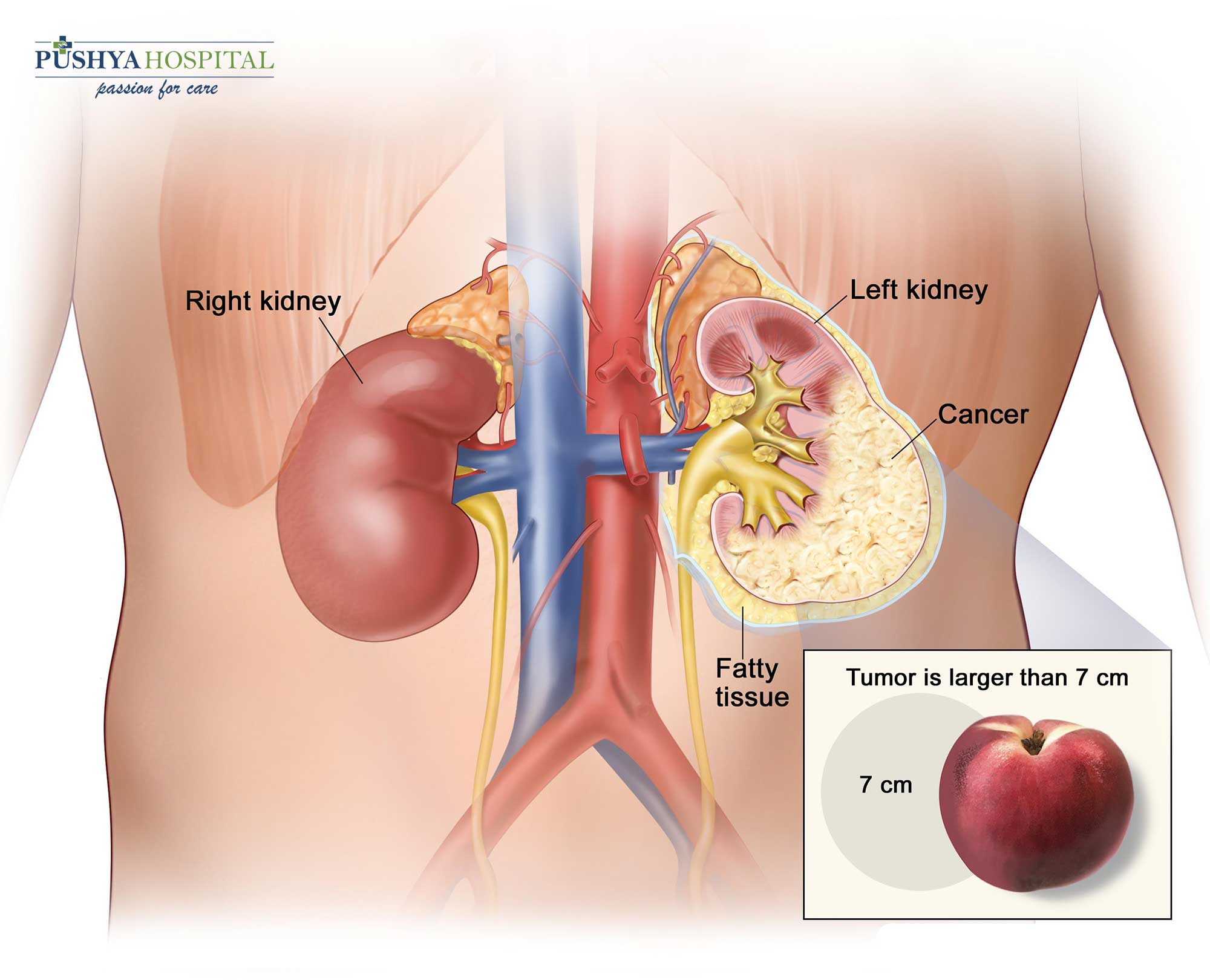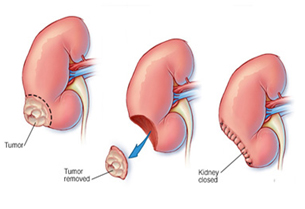OVERVIEW
Kidney cancer also called renal cancer begins in the kidney. It is a disease when cells become cancerous and grow out of control and form a tumor. Generally, all kidney cancers appear in the lining of tiny tubes of the kidney. This type of kidney cancer is called renal cell carcinoma. Kidney cancers are easier to detect before they spread to distant organs and their treatment too, but many of the times tumors can grow quite large before they detect.

Causes or Reasons
It is most commonly found in men between 50-70 years of age. But it can be diagnosed at any age.
- Family history
- Dialysis treatment
- Cigarettes smoking
- Painkillers like Acetaminophen
- Certain genetic conditions and exposure to the certain condition
- Having high blood pressure or lymphoma.
Symptoms
- Blood in urine
- A lump inside or abdomen
- Loss of appetite
- The pain inside which does not go away
- Weight loss without noticeable reasons
- Fever without cold
- Anemia

How we can evaluate (Investigation)
- Ultrasound
- CT scan
- Magnetic resonance imaging
Treatment Options
At Pushya Hospital, we have experienced urologist and other surgeons, those observe smallest symptom and other things, so that kidney and other function loss could be minimized.
There are following treatment options:
Radical Nephrectomy
In this operation, a surgeon removes the whole kidney, the attached adrenal gland, nearby lymph nodes and the fatty tissue around the kidney. Most of the people survive easily with one working kidney only.
There are two options for removal of kidney
- Open Radical Nephrectomy
- Laproscopic Radical Nephrectomy
There are lots of benefits in Laproscopic Radical Nephrectomy like less painful, less bleeding, early discharge and less scar over abdomen.
Partial Nephrectomy or Nephron sparing surgery
In this surgical procedure, the surgeon removes only affected part of the kidney which contains cancer, leaving rest of the kidney. Partial nephrectomy is the preferred treatment for early-stage cancer. This surgical procedure goes well in case of single small tumor less than 4 cm across or to remove large tumors up to 7 cm across. A major benefit of this procedure is that most of the kidney functions remain unchanged. This surgical procedure cannot be a good option if the tumor is in middle of kidney or very large or if cancer has been spread to lymph nodes or distant organs.
Regional Lymphadenectomy (lymph node dissection)
In this surgical procedure, a surgeon removes nearby lymph nodes and observe about their cancer contain. In some of the cases, regional Lymphadenectomy is done with radical nephrectomy, the number of lymph nodes removal may be more extensive if there would be a higher risk to spread. Lymph node removal could be an active thinking of the surgeon if lymph nodes look enlarged or feel abnormal during the procedure.
Removal of metastases
1 in 4 patients with kidney cancer, cancer had spread (metastasized) to other parts of the body until the cancer is diagnosed. Some of the common sites are lungs, lymph nodes, bones, and liver, still, surgery may be helpful.
Attempts at curative surgery
In rare cases when there is a single metastasis or few which can be easily removed without big complications, these metastases may be removed at the same time as a radical nephrectomy or in case of cancer returns.
Surgery to relieve symptoms (Palliative surgery)
When other methods are not a helpful surgical removal of metastases can relieve pain and other symptoms.



